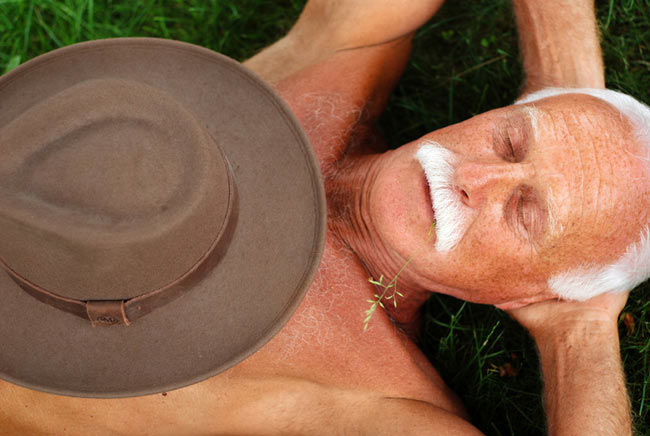Do Older People Need More Sleep?

Editor's Note: Fred Cicetti tackles health questions from other seniors each Monday on LiveScience, starting today. If you have a question, write fred@healthygeezer.com.
This Week's Question: Do older people need more sleep?
Seniors need about the same amount of sleep as younger adults — seven to nine hours a night.
Unfortunately, many older adults don't get the sleep they need, because they often have more trouble falling asleep. A study of adults over 65 found that 13 percent of men and 36 percent of women take more than 30 minutes to fall asleep.
Also, older people often sleep less deeply and wake up more often throughout the night, which may be why they may nap more often during the daytime. Nighttime sleep schedules may change with age too. Many older adults tend to get sleepier earlier in the evening and awaken earlier in the morning.
Many people believe that poor sleep is a normal part of aging, but it is not. Sleep patterns change as we age, but disturbed sleep and waking up tired every day are not part of normal aging. If you are having trouble sleeping, see your doctor or a sleep specialist.
Here are some pointers to help you get better sleep:
Get the world’s most fascinating discoveries delivered straight to your inbox.
Go to sleep and wake up at the same time, even on weekends. Sticking to a regular bedtime and wake time schedule helps keep you in sync with your body's circadian clock, a 24-hour internal rhythm affected by sunlight.
Try not to nap too much during the day — you might be less sleepy at night.
Try to exercise at regular times each day. Exercising regularly improves the quality of your nighttime sleep and helps you sleep more soundly. Try to finish your workout at least three hours before bedtime.
Try to get some natural light in the afternoon each day.
Be careful about what you eat. Don't drink beverages with caffeine late in the day. Caffeine is a stimulant and can keep you awake. Also, if you like a snack before bed, a warm beverage and a few crackers may help.
Don't drink alcohol or smoke cigarettes to help you sleep. Even small amounts of alcohol can make it harder to stay asleep. Smoking is dangerous for many reasons, including the hazard of falling asleep with a lit cigarette. Also, the nicotine in cigarettes is a stimulant.
Create a safe and comfortable place to sleep. Make sure there are locks on all doors and smoke alarms on each floor. A lamp that's easy to turn on and a phone by your bed may be helpful. The room should be dark, well ventilated, and as quiet as possible.
Develop a bedtime routine. Do the same things each night to tell your body that it's time to wind down. Some people watch the evening news, read a book, or soak in a warm bath.
Use your bedroom only for sleeping. After turning off the light, give yourself about 15 minutes to fall asleep. If you are still awake and not drowsy, get out of bed. When you get sleepy, go back to bed.
Try not to worry about your sleep. Some people find that playing mental games is helpful. For example, tell yourself it's five minutes before you have to get up and you're just trying to get a few extra winks.
If you are so tired during the day that you cannot function normally and if this lasts for more than 2 to 3 weeks, you should see your family doctor or a sleep disorders specialist.
- Why We Get Sleepy
- 5 Things You Must Know About Sleep
- More Sleep News & Information
The Healthy Geezer column publishes each Monday on LiveScience. If you would like to ask a question, please write fred@healthygeezer.com. © 2009 by Fred Cicetti.
 Live Science Plus
Live Science Plus





